Sometimes most book designers overlook an important step in their creative process: creating an Index. A well-structured index is key to enabling readers to efficiently navigate through extensive book projects. Therefore, let's take a closer look at the possibilities of Adobe InDesign for creating an index and go through this process step by step.
Main Takeaways
- An index makes it easier for readers to quickly find specific topics.
- Creating an index requires careful planning and should be scheduled earlier in the process.
- InDesign offers specific tools to manage index entries efficiently.
Step-by-Step Guide to Creating an Index
To create an index in Adobe InDesign, there are some basic steps to follow. This guide will help you plan and implement your index carefully.
Step 1: Open Index Panels
First, you need to activate the Index panel. To do this, go to “Window” and select “Type and Tables”. Here you will find the “Index” panel.
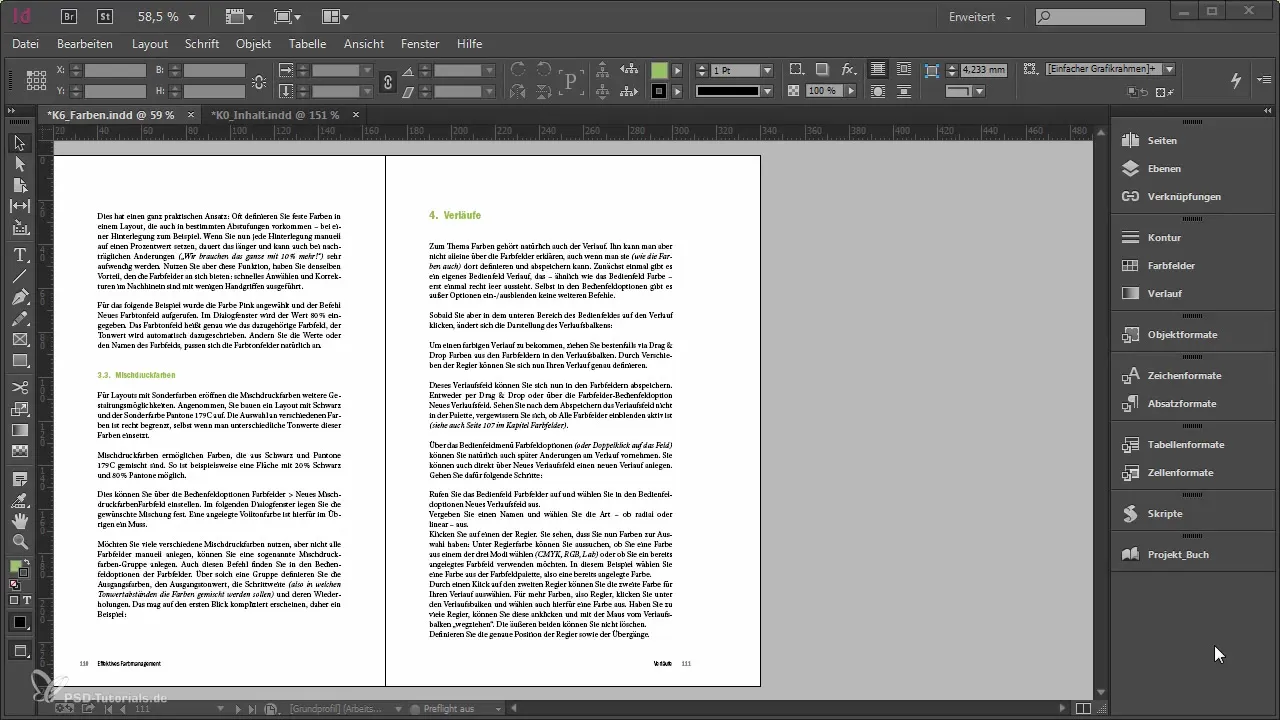
Step 2: Create a New Index Entry
To create an index entry, highlight the desired text. For example, you might select the word “Color”. Then click on “New Page Reference” to add it. InDesign will automatically pick up the topic level.
Step 3: Check the Index Mark
After creating an index entry, you will see a small mark before the highlighted word. This indicates that an index entry exists. It is important not to accidentally delete this mark, as doing so could irreversibly remove the index entry.
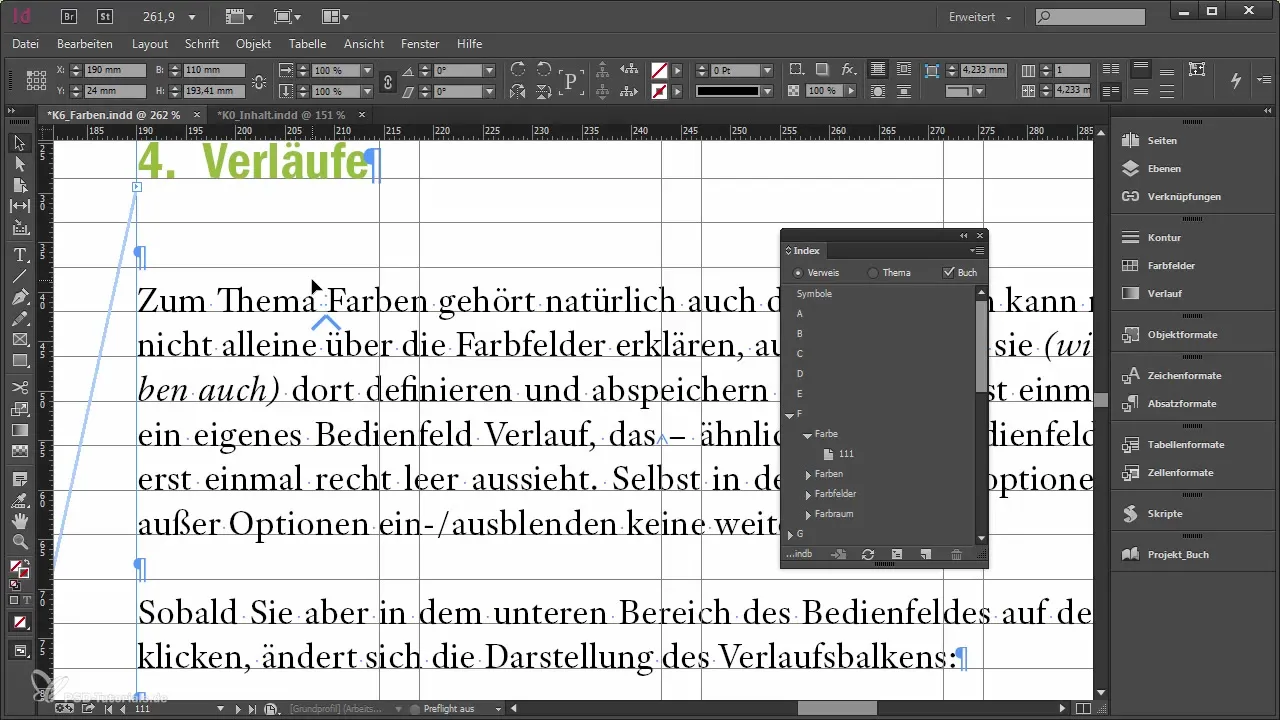
Step 4: Edit Index Entries
If you have similar entries, you can consolidate them. Do this by double-clicking the index entry and changing the entry so that the two terms are grouped under a common term. For example, you could group “Color” and “Color Space” under “Color”.
Step 5: Activate Book
Make sure the “Book” option is activated to search all documents in your book and capture all index marks. This ensures that the index remains complete and consistent.
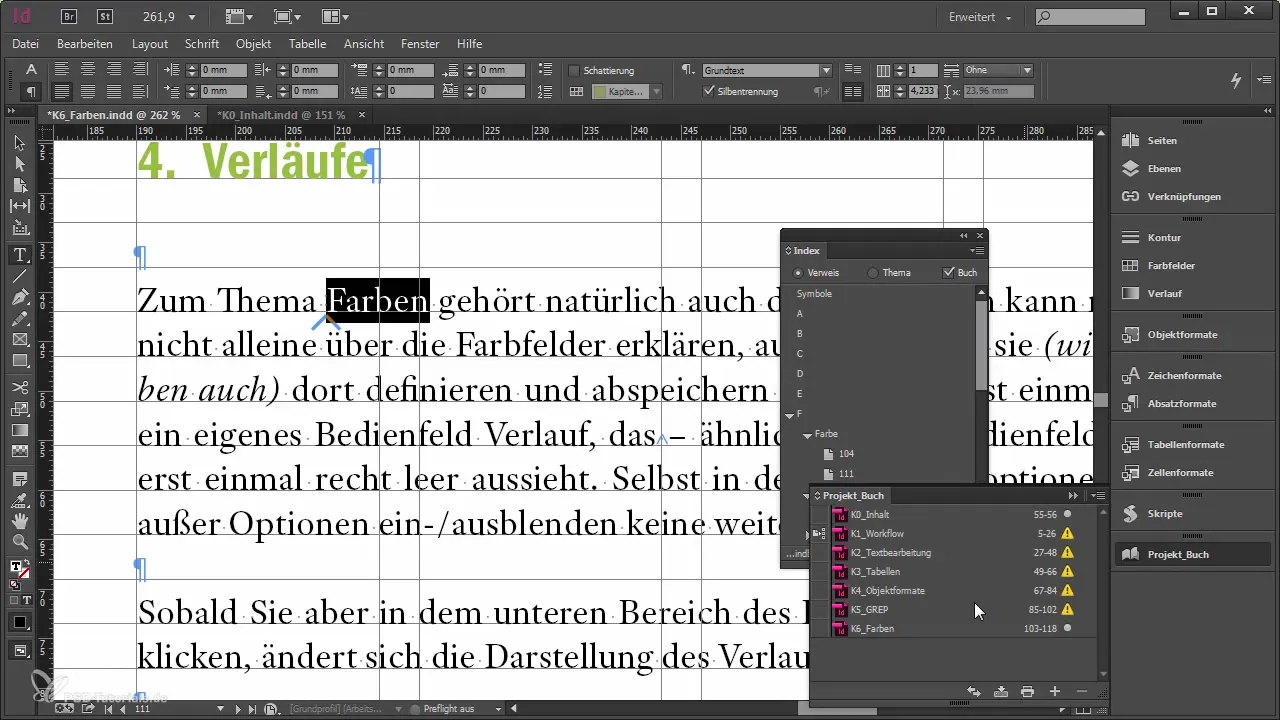
Step 6: Add Cross-References
If there are terms that have different formulations, simply add them as cross-references. For example, create a cross-reference for the word “Gradients” that points to “Gradients”. This way, readers searching for the term “Gradients” can also be redirected to the corresponding page with “Gradients”.
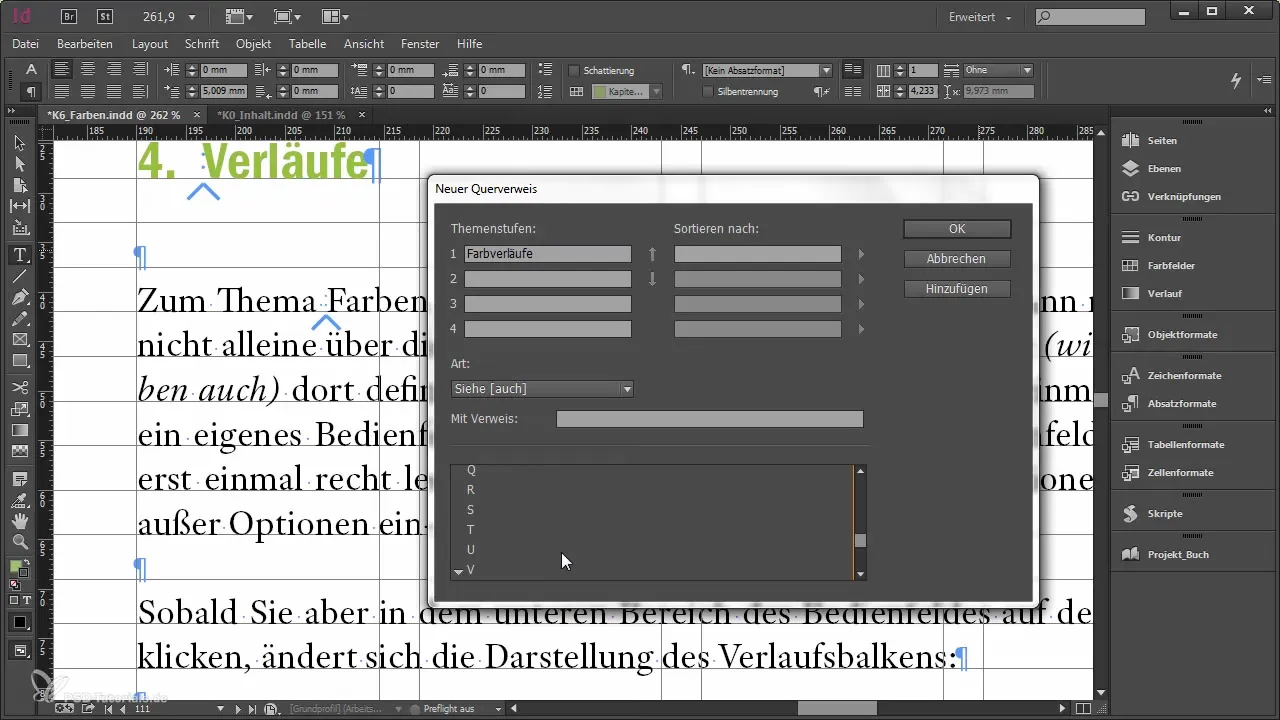
Step 7: Create Hierarchies in the Index
To make the index even more structured, you can create hierarchies with subgroups. For example, if you have different categories like “Panel Color” and “Color Swatches”, you can group these under the overarching term “Panel”. This gives your readers a clear overview of the content.
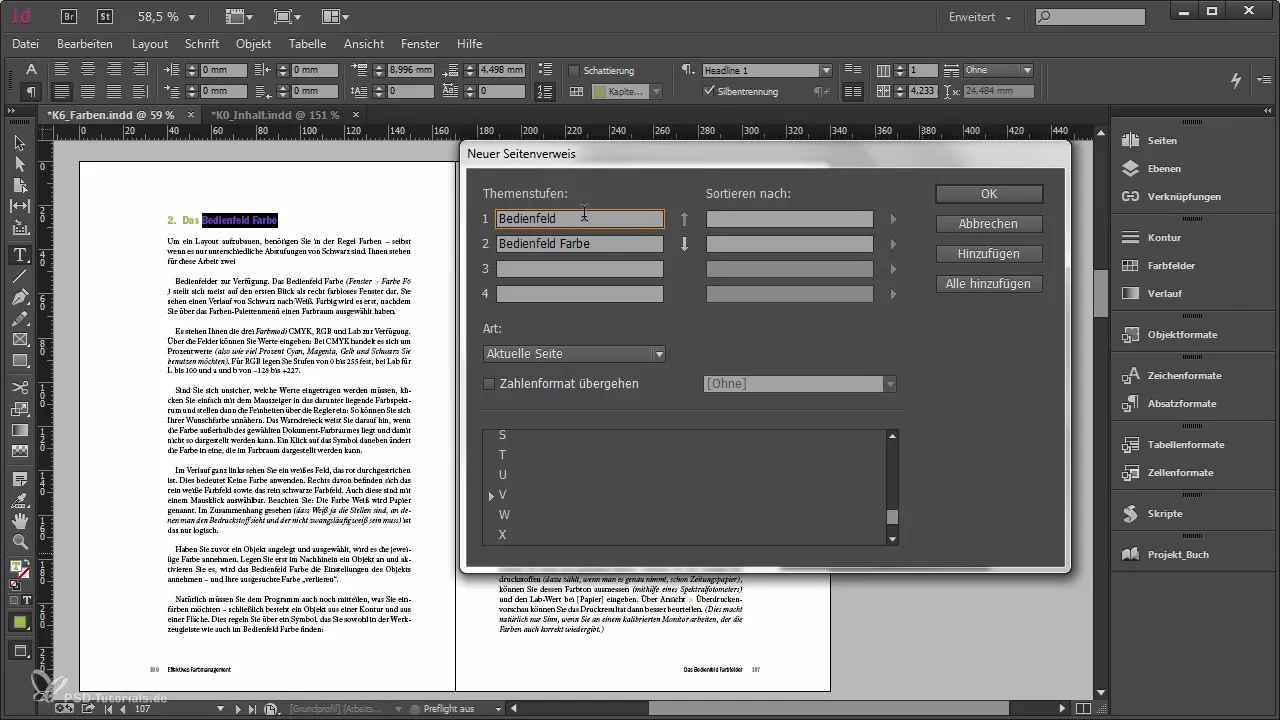
Step 8: Generate Index
Once you have created all index entries and hierarchies, it is time to generate the index. To do this, draw a text frame and click on “Generate Index”. Be sure to include the document for the index as well.
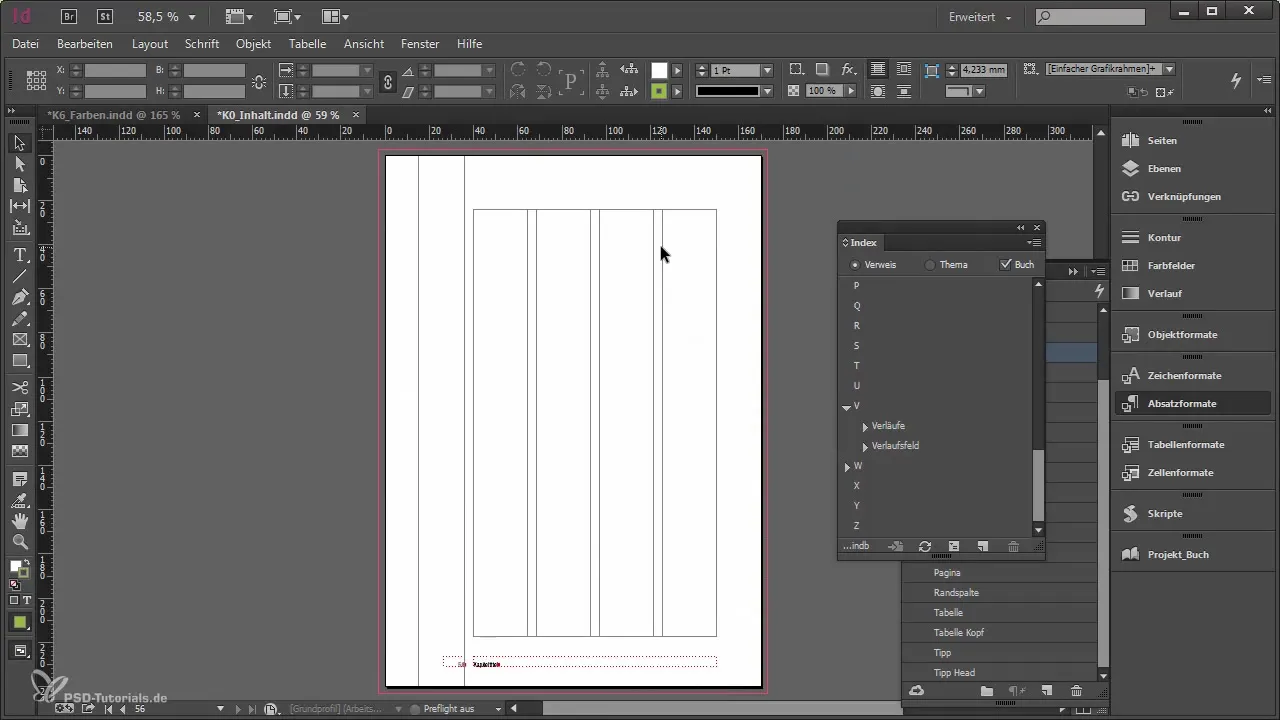
Step 9: Format the Index
Now you can adjust the layout of the index. Choose an appropriate format that suits your book, and make sure that spacing and special characters are correct. Pay attention to readability and the clear labeling of different hierarchies in the index.
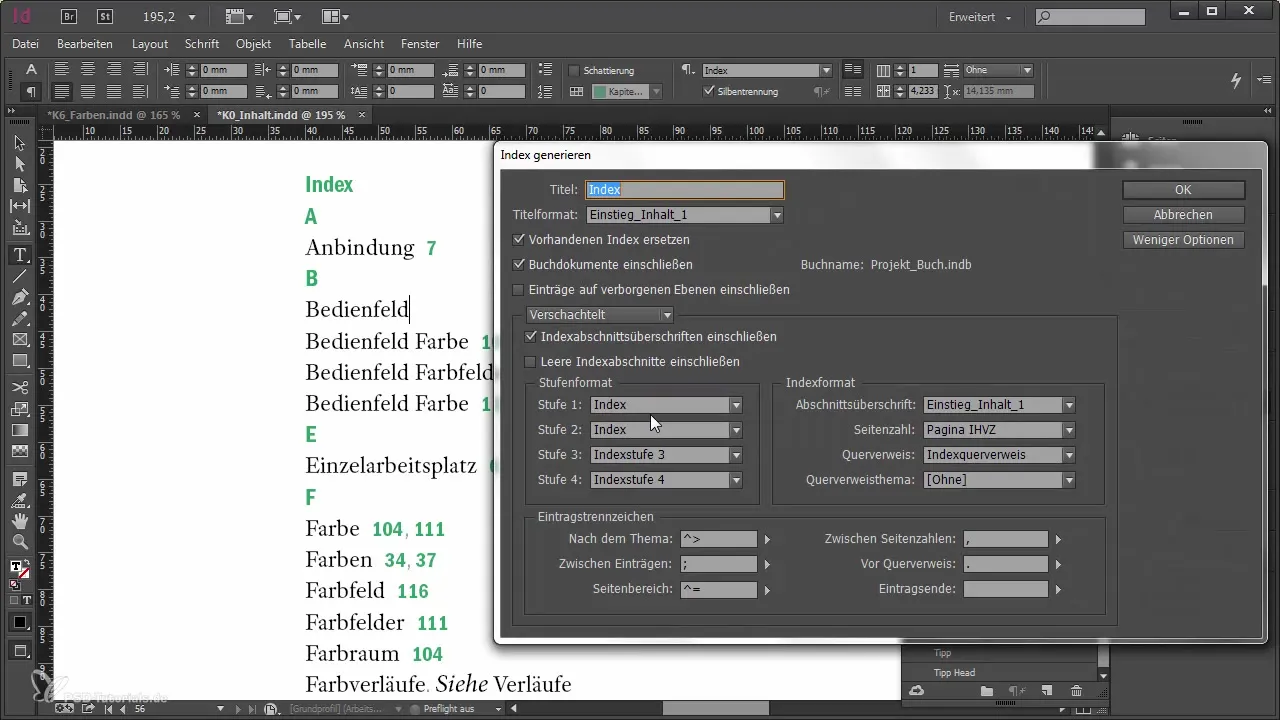
Step 10: Review the Final Index
After generation, you should thoroughly review the index. Make sure all entries are displayed correctly and that the page numbers are accurate. Any adjustments can be easily made at this stage.
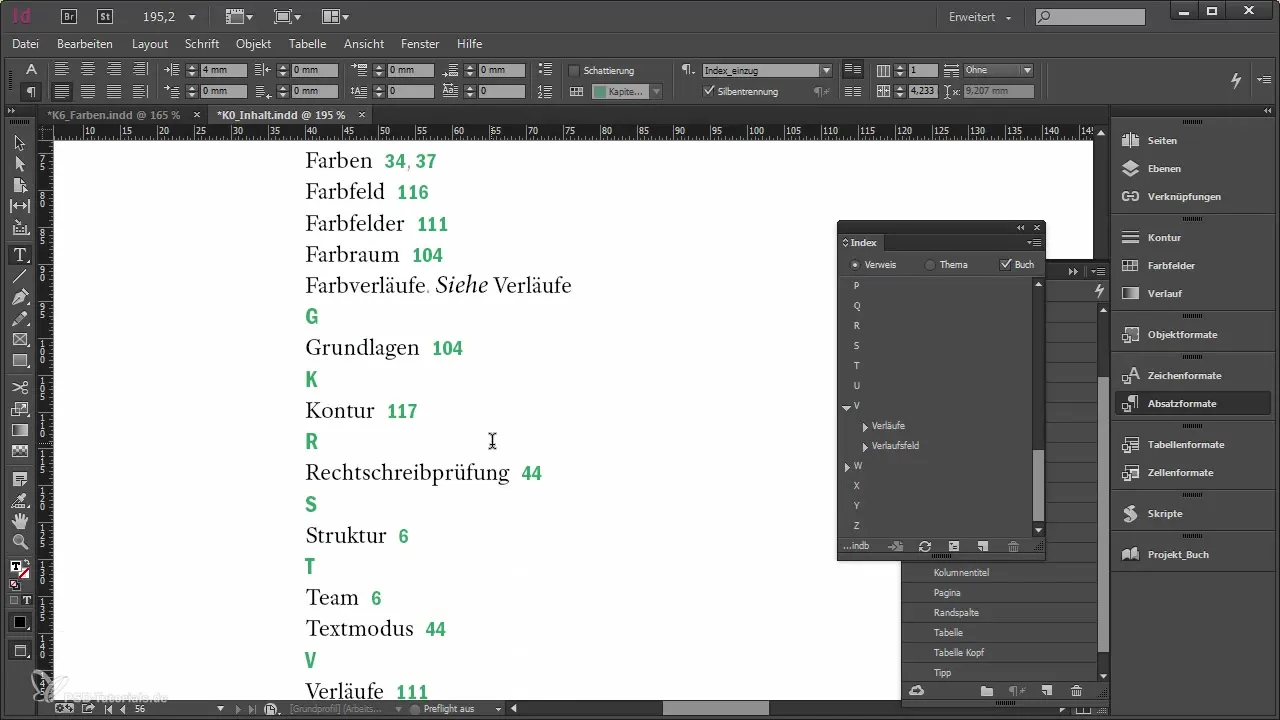
Summary
In this guide, you learned how to efficiently create an index in Adobe InDesign. From activating the index function to creating and editing index entries, to final formatting, all important steps are covered. If you apply these methods, your index will be clear and helpful for the readers of your book.
Frequently Asked Questions
What is the purpose of an index?An index allows readers to quickly search for specific topics in a book.
Can I use existing Word index marks in InDesign?Yes, you can import Word index marks into InDesign.
How do I edit an index entry in InDesign?Double-click the index entry and make the desired changes.
Are index entries important, even in short books?Yes, even in short books, an index can help readers quickly find relevant information.
How can I adjust the hierarchies in the index?You can create hierarchies by grouping index entries under a common overarching term.


